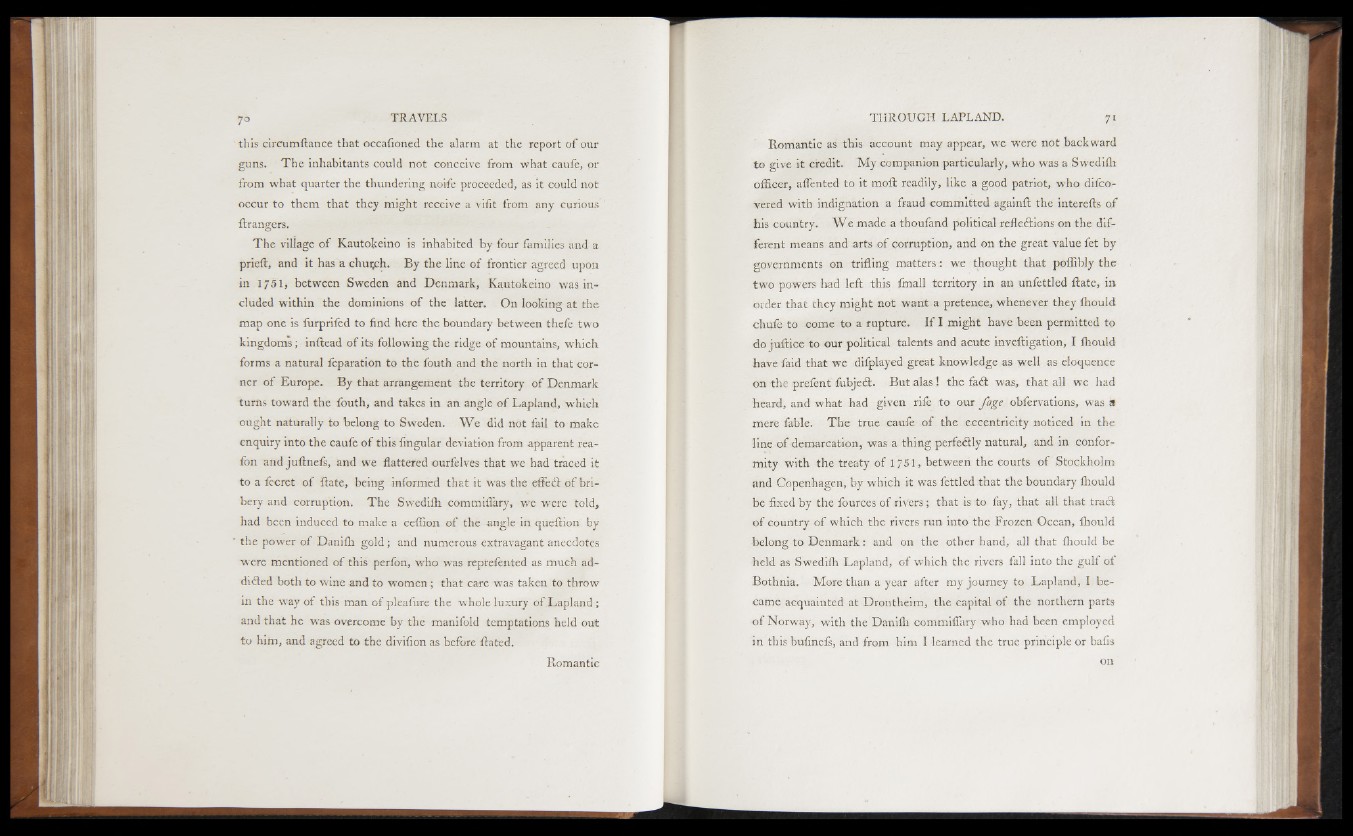
this circumitance that occaiioned the alarm at the report of our
guns. The inhabitants could not conceive from what cauie, pr
from what quarter the thundering notfe proceeded, as it could not
occur to them that they might receive a viiit from any curious
itrangers.
The village o f Kautokeino is inhabited by four families and a
prieit, and it has a chut^h. By the line of frontier agreed upon
in 1751, between Sweden and Denmark, Kautokeino was included
within the dominions o f the latter. On looking at the
map one is lurpriied to find here the boundary between theie two
kingdoms; inftead of its following the ridge of mountains, which
forms a natural feparation to the fouth and the north in that corner
o f Europe. By that arrangement the territory of Denmark
turns toward the fouth, and takes in an angle of Lapland, which
ought naturally to belong to Sweden. W e did not fail to make
enquiry into the cauie of this fingular deviation from apparent rea-
fbn and juilneis, and we flattered ourfelves that we had traced it
to a iecret of ftate, being informed that it was the effcdl of bribery
and corruption. The Swediih commifl'ary, we were told,
had been induced to make a ceflion of the angle in queilion by
the power o f Daniih gold; and numerous extravagant anecdotes
were mentioned of this peribn, who was repreiented as much ad-
diited both to wine and to women ; that care was taken to throw
in the way of this man of pleafure the whole luxury of Lapland ;
and that he was overcome by the manifold temptations held out
to him, and agreed to the divifion as before ftated.
Romantic
Romantic as this account may appear, we were not backward
to give it credit. My companion particularly, who was a Swediih
officer, aflented to it moil readily, like a good patriot, who difco-
vered with indignation a fraud committed againft the interefls of
his country. W e made a thoufand political refleftions on the different
means and arts o f corruption, and on the great value fet by
governments on trifling matters: we thought that poffibly the
two powers had left this fmall territory in an unfettled flate, in
order that they might not want a pretence, whenever they ihould
chufe to come to a rupture. I f I might have been permitted to
do juilice to our political talents and acute inveftigation, I ihould
have faid that we difplayed great knowledge as well as eloquence
on the prefent fubject. But alas ! the fail was, that all we had
heard, and what had given rife to our fage obfervations, was a
mere fable. The true caufe of the eccentricity noticed in the
line of demarcation, was a thing perfectly natural, and in conformity
with the treaty of 1751, between the courts of Stockholm
and Copenhagen, by which it was fettled that the boundary ihould
be fixed by the fources of rivers; that is to fay, that all that tract
of country of which the rivers run into the Frozen Ocean, ihould
belong to Denmark: and on the other hand, all that ihould be
held as Swediih Lapland, of which the rivers fall into the gulf oi
Bothnia. More than a year after my journey to Lapland, I became
acquainted at Drontheim, the capital of the northern parts
o f Norway, with the Daniih commifl'ary who had been employed
in this bufinefs, and from him I learned the true principle or bafis
on